60 Things To Do To Make Your Taxes Easier in 2024

Tax Day is April 15, which means that if you still have to file, you’ve missed your chance to be an early bird, but you’re not yet a procrastinator, either.
Be Aware: Trump-Era Tax Cuts Are Expiring — How Changes Will Impact Retirees
Read Next: Owe Money to the IRS? Most People Don’t Realize They Should Do This One Thing
But the time to get started is now — and the following list of tips will make the process easier when you do.
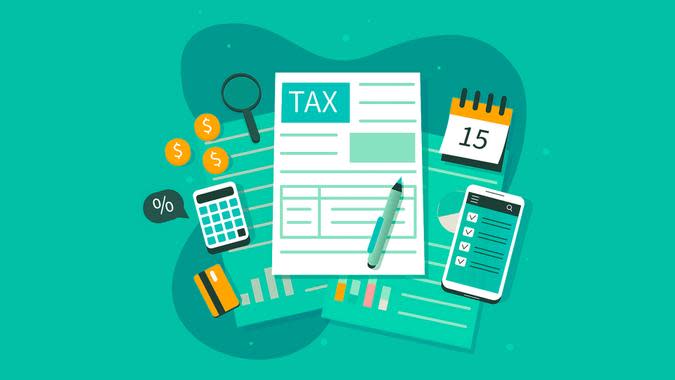
Save the Date
The first step in making your taxes easier is to know the due date. Tax Day was pushed back the last several years because of holidays and the COVID-19 pandemic. In 2024, there will be no such delays, and the filing deadline is back to the traditional date of April 15.
Find Out: This Is the One Type of Debt That ‘Terrifies’ Dave Ramsey
Learn More: IRS Increases Gift and Estate Tax Exempt Limits — Here’s How Much You Can Give Without Paying
Sponsored: Owe the IRS $10K or more? Schedule a FREE consultation to see if you qualify for tax relief.

Avoid Errors
This one sounds obvious, but many taxpayers waste time and money because they make avoidable errors, leading to rejected returns, amended returns or even audits.
The IRS states, “Taxpayers should take extra time to review their tax return so they can file a complete and accurate return and avoid refund delays… Check all names and double-check all Social Security numbers as well as account and routing numbers for direct deposit.”
For You: The 7 Worst Things You Can Do If You Owe the IRS

Review Publication 17
IRS Publication 17 “covers the general rules for filing a federal income tax return,” according to the agency. “It supplements the information contained in your tax form instruction booklet. It explains the tax law to make sure you pay only the tax you owe and no more.”
Give it at least a skim before you file.

Know the Law — Or at Least the Dumbed-Down Version
According to the IRS, the Internal Revenue Code is “The codified collection of U.S. laws on income, estate and gift, employment and excise taxes, plus administrative and procedural provisions.”
Attempting to read and understand it is, to be kind, a chore. Luckily, the IRS offers a primer called “IRS Guidance in Plain English,” which you should familiarize yourself with before you file.

Know Your Rights
You should also familiarize yourself with the Taxpayer Bill of Rights, which is available on IRS.gov.

Know Who To Contact With a Problem
If you encounter a problem or want to press your rights, your Local Taxpayer Advocate is your voice within the IRS — they exist to make sure you’re treated fairly. Find yours and know their contact info before a problem arises.
Check Out: Billionaires vs. the Middle Class: Who Pays More in Taxes?
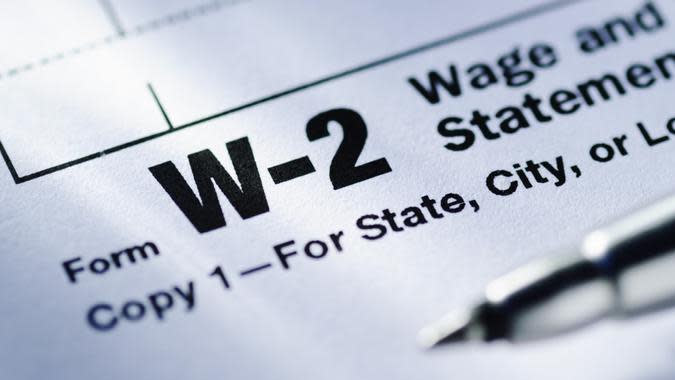
Get To Know the Most Common Forms
The IRS has a page that profiles the most commonly used forms for reporting income and claiming credits and deductions. Brush up before you get started.

Sign Up for Tips
The IRS suggests signing up to its e-News subscription “to get easy-to-read tips about taxes via e-mail from the IRS throughout the year. Tax Tips are brief, to the point and cover a wide range of topics.”
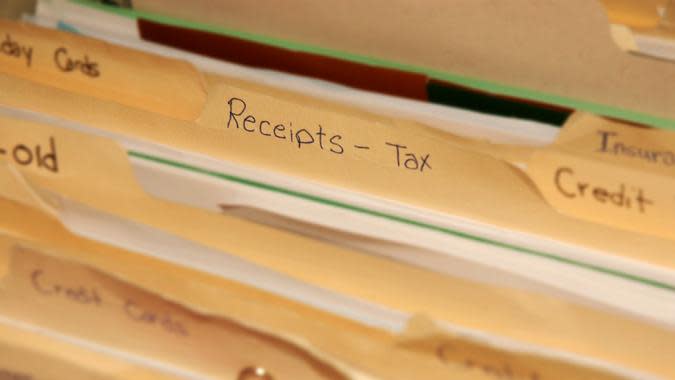
Create and Maintain a Dedicated Folder
Whether physical or digital, make a folder for all your documents and keep it neat.
“Designate a place to collect all your relevant tax files, receipts, etc., throughout the year so everything is in one place and ready to go,” said Alton Moore, a dually licensed attorney and CPA and founding attorney of the California-based firm Evolution Tax & Legal.

Consider Making a Digital Folder and a Physical Folder
If you’re one of the many people who receive some paper documents in the mail and some digital documents online, Forbes suggests creating an online folder and a physical folder for each. Alternatively, you could print your digital forms or scan and upload your paper documents.
Explore More: Top 7 Countries with Zero Income Tax

Make Sure Your ITIN Is Still Valid
If you file with an individual taxpayer identification number issued before 2013 — that you haven’t used at least once in tax years 2020-22 — and the middle digits are 70-99, your ITIN has expired, and you’ll need to request a new one.

Let the IRS Know If You Moved
Before you get started, make sure to inform the IRS about any address changes with Form 8822 — or just use your new address on your returns.

Track Expenses Throughout the Year
Moore said to use apps or software to track expenses and receipts in real time, especially if you’re self-employed or have numerous deductible expenses.
“This habit can save significant time and ensure accuracy,” he said.

Summarize and Record Charitable Donations
If you made charitable donations, Moore said to keep a detailed record of each contribution, including the date, organization and amount.
“For non-cash donations, keep a list of donated items and their estimated value,” he said.
Read Next: How Much Money You’d Owe If the National Debt Was Divided by Household

Do the Same for Medical Expenses and Deductions
Moore said to keep a folder within your main tax folder for health care transactions.
“For deductions like medical expenses or work-related costs, compile summaries and total amounts spent throughout the year,” he said.

Don’t Forget the Student Loan Interest Deduction Is Back
If you’re a student borrower who resumed payments on your college loans in 2023, you can deduct up to $2,500 in interest. Form 1098-E has the information you need to claim the deduction.

Read the IRS’s Recordkeeping Primer
Charitable donations, student loans and medical expenses are part of the puzzle, but you’ll have more to keep track of than that if you want to get it right. Read the IRS’s recordkeeping tutorial — Topic No. 305 — to make the crucial step of document-gathering as easy as possible.

Report Disaster Losses and Theft
The IRS generally lets taxpayers deduct losses from certain disasters and thefts. If you suffered property damage from a tornado, flood, earthquake or similar event, or lost money or property to theft or fraud like a Ponzi scheme, read up on Topic No. 515 to see what you can write off.
Be Aware: You Can Get These 3 Debts Canceled Forever
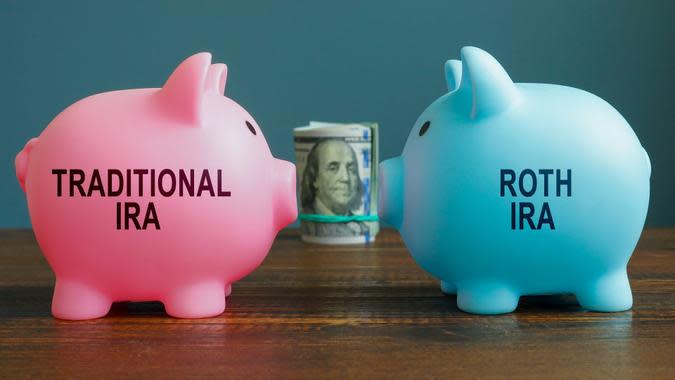
Max Out Your IRA
If you have an individual retirement account, you have until April 15 to make contributions up to $7,000 — $8,000 if you’re 50 or older — for 2023, which can reduce your taxable income.

Have a Designated Card for Work Expenses
Moore suggests sole proprietors and business owners use one card exclusively for business and work expenses.
“Independent contractors and self-employed individuals should use a credit card for work,” he said.

Have a Dedicated Bank Account for Work Expenses
Moore said it’s also critical for business owners and contractors to keep a separate bank account for work.
“This way bookkeeping is streamlined, and there’s no commingling of funds, which could make you more susceptible to an audit,” he said.

Keep Everything for at Least 3 Years After You File
The moment you file, you might want to throw everything away and be done with it. Don’t.
“The IRS can and will audit individuals for years passed,” said Moore. “Keep your folders intact for at least 3 years after your original filing date to avoid any issues.”
Find Out: How Much Money Do Americans Have in Their Bank Accounts in 2024?
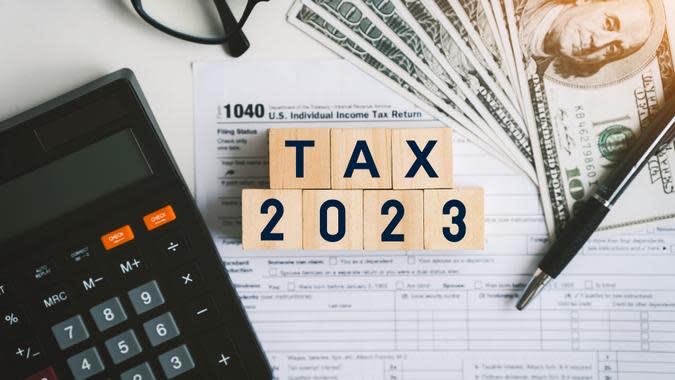
Start by Getting Out Last Year’s Returns
An audit is fairly unlikely, but you’ll need prior-year returns if you need to file an amended return or claim a missed refund — and having them on hand can make it easier to complete this year’s taxes, too.
“Check your prior year’s tax filings for reference,” said Johan Garcia, CPA, owner and sole author of After Tax Cash and principal of JG CPA & Advisory. “However, this might change, as you could have income from different sources and deductions, too.”

Start Early
The easiest way to make tax season as painless as possible is to not procrastinate. You have until April 15, but the earlier you get started, the better.
“Begin gathering your tax documents well before the deadline,” said Garcia.

Create a Form and Document Checklist
The best way to know if you have all applicable forms is to anticipate their arrival and cross them off a pre-made list when they arrive.
“Download a checklist and collect all necessary forms that you might need to file,” said Garcia.
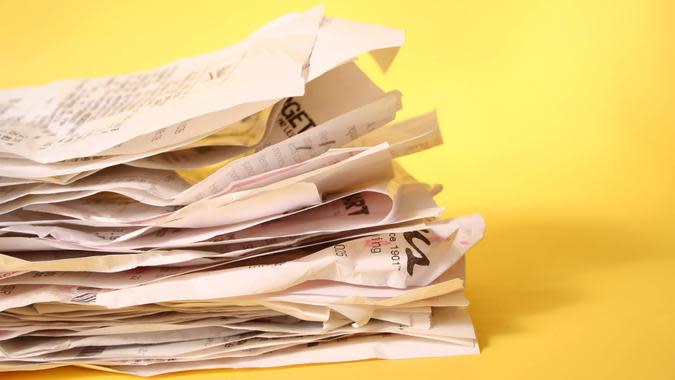
Organize Receipts and Documentation Before You Begin
Don’t start inputting information into your tax software platform or visit your CPA until you’ve gathered and organized all receipts and other proof of expenditures that could lower your tax bill.
“Keep records of all expenses that could qualify for deductions — costs, dates, vendors, etc.,” said Garcia.
Check Out: How Far a $100,000 Salary Goes in America’s 50 Largest Cities

Ditch the Paper
The old way of gathering physical paper receipts and organizing them in a folder is a recipe for unforced errors.
“Ideally, use digital apps like Excel to categorize receipts for home office expenses, education costs, medical expenses, charitable donations and others,” said Garcia.

Learn About Lesser-Known Deductions
Garcia said to familiarize yourself with common deductions that some people miss, including those involving state and local taxes.
“For example, SALT up to $10,000, mortgage interest, medical expenses exceeding 7.5% of your adjusted gross income and charitable contributions up to 60% of your adjusted gross income,” he said.

Investigate All Available Credits Before You Start
Just like deductions, credits can lower your taxable income. Get every dollar coming to you by researching them first, because they change every year.
“Look for credits such as energy-efficient credits, Earned Income Tax Credit, Child Tax Credit and education credits,” said Garcia.

Know the Difference Between Refundable and Nonrefundable Credits
All credits fall into one of two categories, and knowing the difference can help you avoid unpleasant surprises.
“Some credits are refundable, meaning they can increase your refund if they exceed your tax liability,” said Garcia.
Others are nonrefundable, which means they can reduce your bill down to zero, but you don’t keep any that might be left over.
“They just offset your tax liability,” said Garcia.
Trending Now: I’m a Bank Teller: Here Are 10 Mistakes You Are Making With Your Banking

Do Your Homework on Potentially Deductible Major Purchases
The government offers credits for many eco-friendly major appliances, vehicles, building materials, etc., but they apply only to certain models. Find out if yours qualifies before you file to avoid surprises.
“If you purchased electric or energy-efficient equipment, review your receipts and check with the EnergyStar website to see if there’s a possible tax credit available,” said Garcia.

Know and Report All Income Sources
One of the easiest ways to complicate your taxes is to underreport your income, which can come in many different forms beyond just your paycheck.
“Ensure you report all types of income, including ordinary income like wages and salaries, capital gains and any retirement distributions or other related income,” said Garcia. “Check with your income providers if any tax forms are issued.”

Don’t Forget Earned Interest
According to Forbes, many people make the common mistake of forgetting to report earnings from interest-bearing cash accounts, like savings accounts. Don’t omit this income source, which you’re required to report to the IRS.
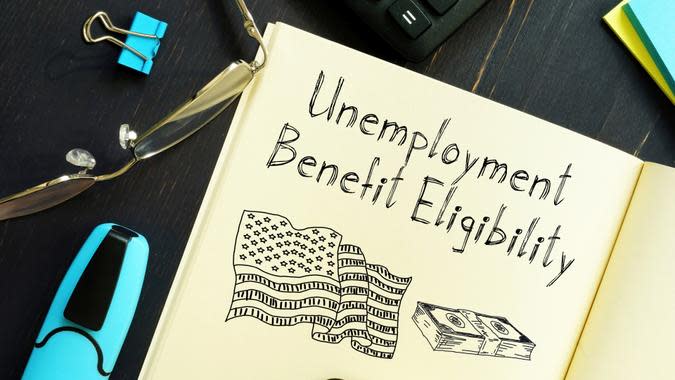
Report Unemployment Compensation
If you received unemployment benefits in 2023, it’s important to know your reporting obligations. Review IRS Topic No. 418, which explains the tax treatment of unemployment compensation according to your unique circumstance.
Discover More: Here’s What the US Minimum Wage Was the Year You Were Born

If You Own a Business, Take Every Deduction
Entrepreneurs should read the IRS’s Guide to Business Expense Resources, which expands on the recently discontinued Publication 535.

Prepare To Reconcile Health Insurance Credits
If you received a premium tax credit for a Marketplace health insurance plan, make sure you have Form 8692 to reconcile the amount paid in advance with the credit you compute when you file.

Don’t Wait for Form 1099-K for P2P Payments
The IRS planned to require taxpayers to use Form 1099-K to report payments of more than $600 through apps like Venmo. However, widespread confusion and uncertainty on the issue compelled the agency to delay the order, and it is now planning a phased rollout in 2024 for the next tax season.

Break It Down Into Smaller Tasks
Several experts told GOBankingRates that one of the best ways to simplify your taxes is to break down the gargantuan task of filing into smaller, more manageable tasks to spread out over tax season. You might gather documents one night, research credits and deductions another, input your personal information on another day and add your financial and income data on another.
Read Next: 7 Things You Should Know If You Deposit More Than $10K Into Your Checking Account

Lean on the IRS
It’s easy to think of the IRS as the enemy during tax time, but the agency and its many taxpayer-friendly services and tools can actually be your best friend.
The agency states, “IRS.gov is available around-the-clock and it’s the fastest way to get assistance. Millions of people use IRS.gov for filing and paying taxes, getting information about their accounts or answers to tax questions. The IRS Services Guide outlines the many ways taxpayers can get help from the IRS.”

Create or Revisit Your IRS Account
If you haven’t already, start by signing up for a free account at IRS.gov. Your account will be your home base for tax season and show you all your pertinent information — from this year and years past — in one place, with options for making payments and setting up payment plans. If you already have an account, check in with it and brush up before you file.

Download IRS2Go
Available in both English and Spanish, the IRS’s free app lets you sign up for helpful tax tips, check your refund status, find free tax prep assistance, make a payment and more.

File Electronically
The IRS says about 94% of taxpayers now file electronically, and if you’re among the 6% still putting pencil to paper before sending your returns off via snail mail, moving into the digital age is the single best way to make your taxes easier. The IRS says e-filing is faster, simpler, more accurate, more secure and ensures a faster acceptance and refund.
Learn More: 6 Ways to Tell If You’re Financially Smarter Than the Average American
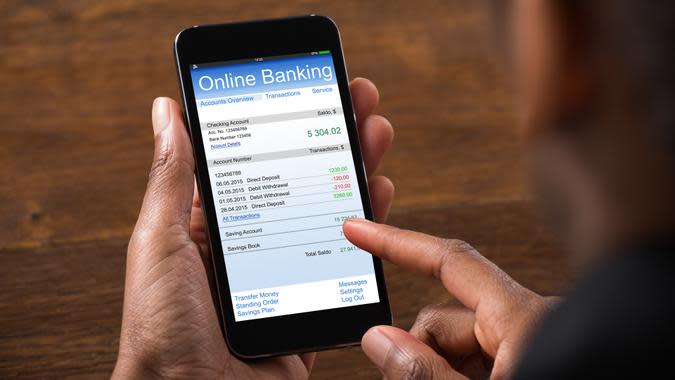
Sign Up for Direct Deposit
The IRS says eight out of 10 taxpayers choose direct deposit instead of getting a check in the mail. The agency uses the same electronic transfer system that sends VA and Social Security benefits and wants all taxpayers to know that direct deposit is faster, safer and more accurate than receiving your refund through a check.

Use the Interactive Tax Assistant
The IRS’s Interactive Tax Assistant tool can answer many important questions about filing according to your unique situation, including whether you have to file a return, who you can claim as a dependent, if you’re eligible for a credit or if you can deduct an expense.

Use IRS Calculators
The IRS offers handy calculators to help you get your numbers right before you file. The Sales Tax Deduction Calculator, for example, can help those who itemize determine how much state and local general sales tax they can claim.

See If You’re Eligible for IRS FreeFile
According to CNBC, seven in 10 taxpayers are eligible for the IRS’s FreeFile service, but only 2% take advantage of the no-cost program.
FreeFile, which is open to taxpayers with AGIs of $79,000 or less, partners with trusted third-party online preparation companies to e-file your returns for free.
Explore More: A $150K Income Is ‘Lower Middle Class’ In These High-Cost Cities

Look Into FreeFile Even If You Have Complicated Returns
FreeFile can now handle even complex returns for those who meet the income threshold. You can qualify even if you have self-employment income, gig income, hobby income or trade income.

Consider the Direct File Pilot
In 2024, the IRS launched a pilot program for a new tool called Direct File. Enrollment is open but limited, but there are many potential benefits for those who qualify.

Research Alternative Filing Software
If you aren’t eligible for FreeFile, the experts said to research alternative software platforms as one of the smaller steps you create upon breaking down the big task of filing.
More than a dozen providers are competing for your business, most of which offer several price tiers for categories like self-employed people, investors and business owners. If you wait until the last minute and pick randomly, your procrastination could cost you dozens or even hundreds of dollars.

Use a Human If Your Life Changes
Using software to self-file is relatively easy and simple, but according to CNN, it probably makes sense to hire a professional tax preparer if you experienced major life changes in the previous tax year. That includes things like getting married or divorced, launching a business or retiring.
Check Out: 7 Key Signs You’ve Reached Financial Freedom

Pick the Right Professional
If you are in the market for professional help, it’s imperative to pick the right tax pro. Search every available option with the IRS’s Directory of Federal Tax Return Preparers with Credentials and Select Qualifications database.

Consider a Hybrid Format
If you can handle most of your returns alone but want a professional on hand to answer questions and assist with complex sections, Forbes recommends choosing a hybrid DIY/full-service software format, which platforms like TurboTax offer as a happy medium.

Or Just Find an Authorized e-File Provider
Authorized e-file providers are tax professionals who can prepare and file tax returns through the IRS electronic filing program. The IRS maintains a database that lets you find one near you by entering your state and zip code.

Plan To Pay by April 15th Even If You Delay Filing
The IRS grants six-month extensions that let you file as late as Oct. 15, but you still have to pay on time. Even if you’re granted a filing extension, remember that you have to settle your bill by Tax Day in April, unless you work out a payment plan.

Seek Volunteer Assistance If You Qualify
The disabled, the elderly, people who qualify on income-based grounds and those who speak limited English are eligible for volunteer assistance with their taxes. If you qualify, use the IRS’s Get Free Tax Prep Help tool to find Volunteer Income Tax Assistance (VITA) and Tax Counseling for the Elderly (TCE) participants.

Seek In-Office IRS Assistance
If you don’t qualify for any special volunteer programs, use the IRS’s Taxpayer Assistance Center Office Locator to find a Taxpayer Assistance Center near you for help you can’t find online.

Track Your Refund Online
Don’t waste your time calling the IRS to inquire about your refund status. Instead, use the agency’s Where’s My Refund? tool online.
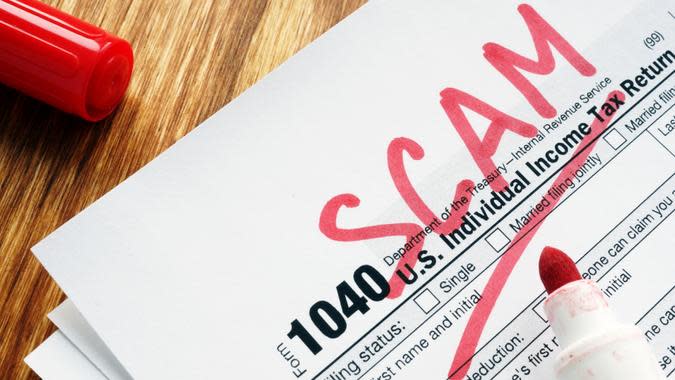
Don’t Get Scammed
The IRS warns of frauds and scams that lure taxpayers with promises of tax exemptions, outsized refunds and other offers that sound too good to be true — because they are. Learn how to spot them to avoid a frustrating and expensive tax season.
Find Out: 7 Ways the Upper Middle Class Can Become Rich in 2024

Protect Your Identity
Your tax returns contain all of your personal data and financial data in one place, which makes them a gold mine for identity thieves. Visit the IRS’s Taxpayer Guide to Identity Theft page to learn how to protect yourself.

Adjust Your Withholdings To Break Even Next Year
One of the best ways to simplify your taxes and improve your financial life is to complete Form W-4 accurately, so your employer doesn’t withhold too much or too little federal income tax on your behalf. Use the IRS’s Tax Withholding Calculator to get it right for next year.
More From GOBankingRates
Frugal People Love the 6 to 1 Grocery Shopping Method: Here's Why It Works
Social Security: Can Debt Collectors Garnish Your SSI Payments?
This article originally appeared on GOBankingRates.com: 60 Things To Do To Make Your Taxes Easier in 2024

 Yahoo Finance
Yahoo Finance 